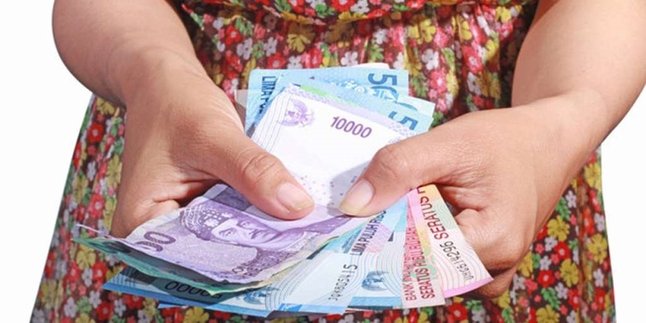Kapanlagi.com - The month of Syawal is a time full of blessings after Ramadan, offering various sunnah practices that are too good to miss. Although these practices are not obligatory, many believe that performing them can strengthen faith and bring great rewards from Allah SWT. One of the most popular practices is the sunnah fasting for six days in the month of Syawal, which has extraordinary significance.
This six-day fast is observed after the celebration of Idul Fitri and is considered equivalent to fasting for an entire year. It is a golden opportunity to gain abundant rewards. This practice does not have to be done consecutively, allowing us to adjust it to our daily schedules. In addition to Syawal fasting, there are also various other sunnah practices recommended in this month, such as strengthening family ties and giving charity.
Moreover, the month of Syawal is the perfect time to increase other sunnah practices. This is because Syawal is a continuation of the blessed month of Ramadan. Therefore, enhancing sunnah practices in the month of Syawal can be an effective way to maintain the spirit of worship after Ramadan ends.
1. The Virtue of Fasting Six Days in the Month of Syawal
Fasting six days in the month of Syawal is a highly recommended Sunnah practice. The Prophet Muhammad SAW said:
"Whoever fasts in the month of Ramadan and then follows it with fasting six days in the month of Syawal, his reward will be like fasting for a whole year."
This virtue serves as motivation for many Muslims to perform it. The intention for the Sunnah fast of Syawal is:
'Nawaitu shauma ghadin "an adaa'i sunnatis Syawwali lillahi ta'ala.'
(I intend to fast the Sunnah of Syawal tomorrow for the sake of Allah Ta'ala).
This fast does not have to be performed consecutively. We can do it separately, for example, two days at the beginning of the month, two days in the middle, and two days at the end of the month. What is most important is the sincere intention and consistency in carrying it out. Thus, we can attain great rewards from Allah SWT.
Additionally, this fast can also serve as a means to train ourselves to remain disciplined in worship after the month of Ramadan. The fast of Syawal teaches us to always maintain our piety towards Allah SWT.
2. Other Sunnah Practices in the Month of Syawal
In addition to fasting six days, there are several other sunnah practices that are recommended in the month of Syawal, including:
- Fasting on Mondays and Thursdays: This fast is recommended because on Mondays and Thursdays, human deeds are raised to Allah SWT. The intention for this fast can be combined with the intention for the Syawal fast.
- Fasting Ayyamul Bidh: Fasting on the 13th, 14th, and 15th of every Hijri month, including the month of Syawal, is also recommended. Its virtues are also very great.
- Maintaining Family Ties: Strengthening relationships with family, relatives, and neighbors is a highly recommended practice in the month of Syawal. Maintaining these ties can expand sustenance and prolong life.
- Charity: Giving charity is a highly recommended practice at all times, including in the month of Syawal. Charity can purify wealth and increase blessings.
- Marriage: Getting married in the month of Syawal is also considered a recommended sunnah practice.
- I'tikaf (if not done during Ramadan): For those who did not have the opportunity to perform i'tikaf in the last ten days of Ramadan, it can be replaced in the month of Syawal.
All the practices mentioned are sunnah practices, which means that although they are not obligatory, they are highly recommended to gain rewards and blessings from Allah SWT. May this information be beneficial and motivate us all to continue worshiping Allah SWT.
By performing sunnah practices in the month of Syawal, we have the opportunity to receive abundant blessings and rewards from Allah SWT. Do not waste the chance to draw closer to Him in this blessed month. May we all be granted strength and steadfastness in performing our worship.
3. Common Questions About Sunnah Practices in the Month of Syawal
1. What are the recommended Sunnah practices in the month of Syawal?
The Sunnah practices in the month of Syawal include fasting six days of Syawal, increasing dhikr and prayers, giving charity, maintaining silaturahmi (ties of kinship), and performing Sunnah prayers such as Dhuha and Tahajud.
2. What is the virtue of fasting six days in the month of Syawal?
Fasting six days in the month of Syawal has the reward of fasting for a whole year, as mentioned in the hadith of Prophet Muhammad SAW.
3. Does fasting Syawal have to be done consecutively?
No, fasting Syawal can be done consecutively or separately as long as it is within the month of Syawal, according to each individual's ability.
4. What is the ruling on performing fasting Syawal before paying off the debt of Ramadan fasting?
It is preferable to pay off the debt of Ramadan fasting first before performing fasting Syawal to gain a more perfect reward.
5. What are the benefits of giving charity in the month of Syawal?
Giving charity in the month of Syawal can strengthen the sense of gratitude, help those in need, and increase rewards and blessings in sustenance.
6. Why is maintaining silaturahmi still an important practice in the month of Syawal?
The month of Syawal is still in the atmosphere of Idul Fitri, so strengthening ties with family, relatives, and neighbors is an encouraged practice to enhance Islamic brotherhood.
7. Is there a specific prayer recommended to be recited in the month of Syawal?
Although there is no specific prayer, it is recommended to increase prayers asking for forgiveness, smooth sustenance, as well as steadfastness in faith and obedience in worship.
8. How to maintain the spirit of worship after Ramadan in the month of Syawal?
Stay consistent by maintaining worship habits such as reading the Qur'an, performing sunnah prayers, fasting, and increasing good deeds so that the spirit of worship remains upheld after Ramadan.
(kpl/mni)
Disclaimer: This translation from Bahasa Indonesia to English has been generated by Artificial Intelligence.












